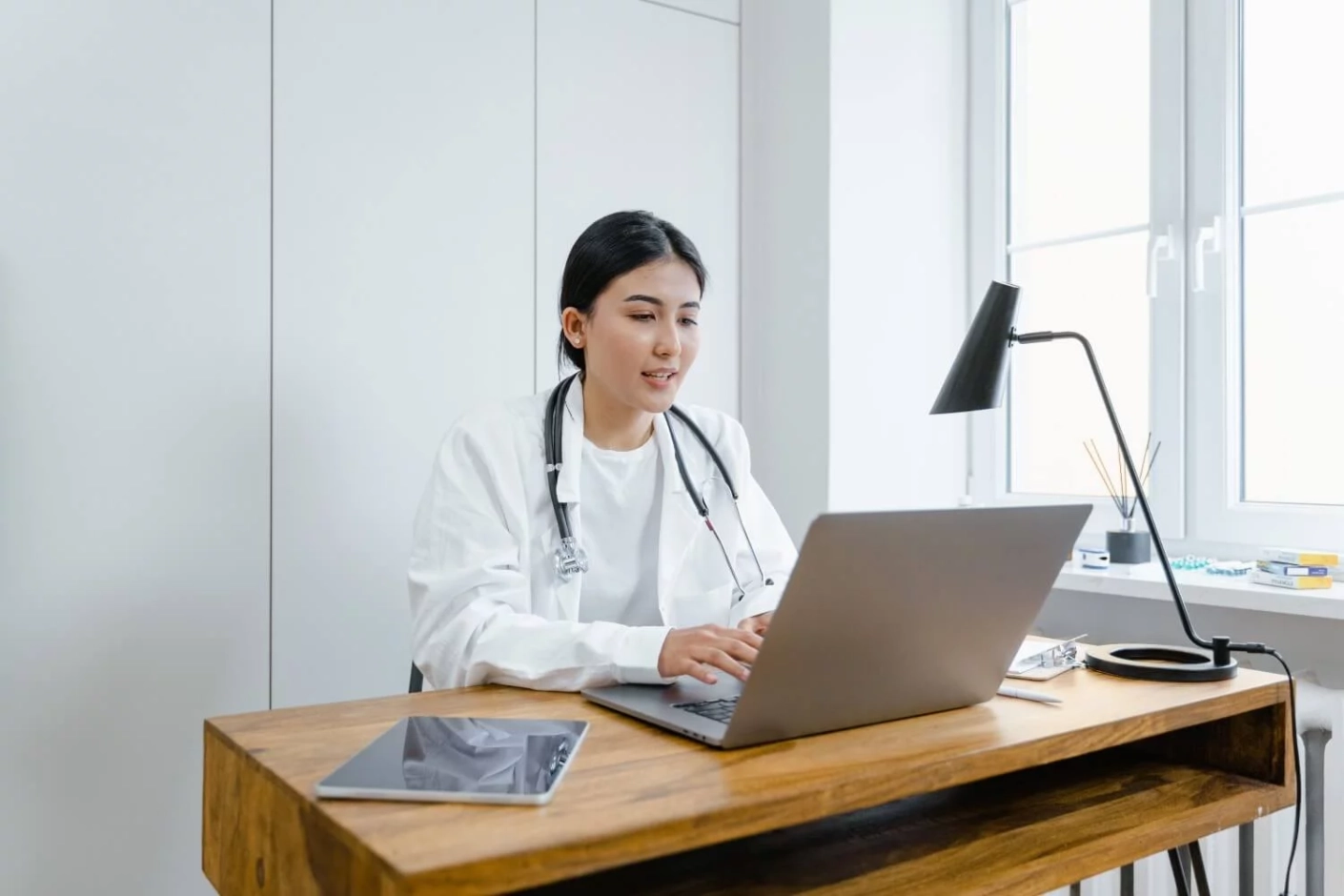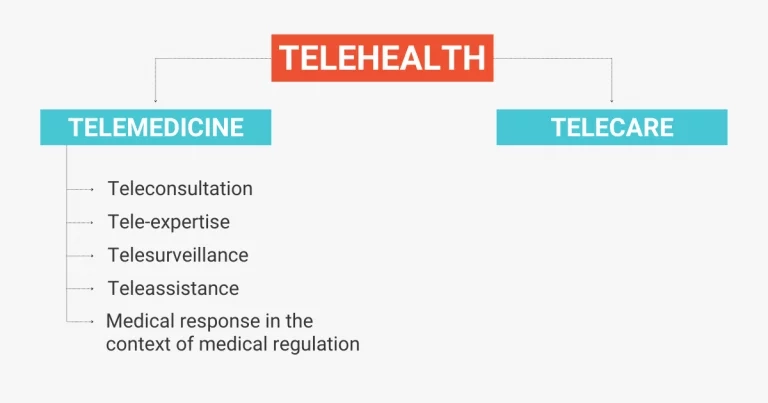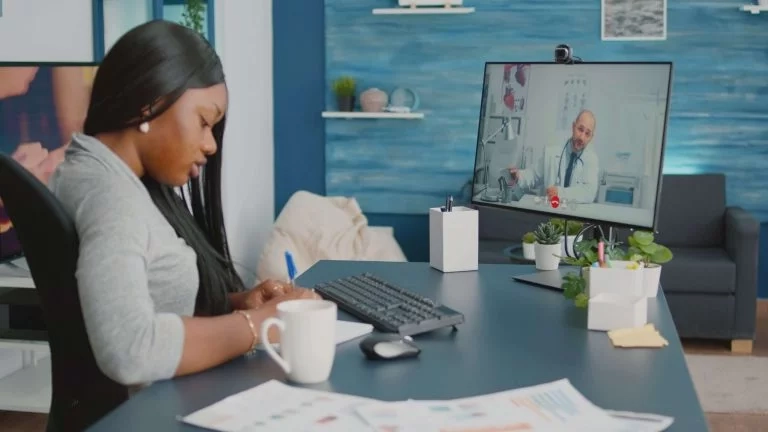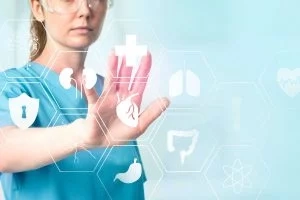Telehealth functional reference, occupational

The Global Health Outlook 2020 report highlights that between 2019 and 2023 the global e-health market is expected to grow by 160%. E-health covers all areas of health that use information and communication technologies. A real current topic, digital health interests and raises questions from everyone. Recently, several information have been released on the subject: new functional French reference, telemedicine for occupational health, new French digital space, artificial intelligence for health … Discover the latest news on e-health.
1/ As of June 4, 2021, the “telemedicine functional reference” becomes the “telehealth functional French reference”
On April 25, 2019, the former French Health Minister had presented a series of measures to support and deploy innovation in terms of digital health. Among these measures was the “telemedicine functional reference“. This document was entrusted to the “Agence du Numérique en Santé (ANS)” by the Ministry of Solidarity and Health. Its objective was to establish a common base for telemedicine platforms available on the market, thus providing a framework for software publishers and reassuring end users.
In concrete terms, the reference lists all the expected functionalities of telemedicine software in order to carry out teleconsultation and tele-expertise procedures. The ANS has indicated that “to make the functional reference intelligible and coherent, the telemedicine software defined has been approached as a complete and unique tool, enabling an end-to-end telemedicine act to be carried out“. In this document, function requirements are expressed with the words “must”, “should” or “few”. This indicates whether it is a mandatory, recommended or optional requirement.
The first version of the reference was released in late May 2019. In addition, it is an iterative document as the ANS has stated that it will be updated annually.
Since June 4, 2021, the telemedicine functional reference has been extended to telehealth and has thus become the “telehealth functional reference“. Decree no. 2021-707 of June 3, 2021 specifies the conditions for implementing and paying for telecare. It also extends the use of tele-expertise to all healthcare professionals. This new version of the document includes the addition of a a functional reference for telecare as well as the adjustment of a functional reference for teleconsultation and teleexpertise to the decree cited above.
The concept of telehealth is now composed of telemedicine and its five acts:
- Teleconsultation
- Tele-expertise
- Telesurveillance
- Teleassistance
- Medical response in the context of medical regulation
and on the other hand, telecare.

Telecare is the second subset of telehealth and allows remote care to be practiced using information and communication technologies. More precisely, this practice allows a pharmacist or a paramedical professional to support and monitor a patient remotely using digital technology.
2/ Telemedicine will now be possible for occupational medicine
Adopted on July 23, 2021, the law to strengthen prevention in occupational health has been decreed by the French Parliament. Many elements have been adopted with the aim of improving prevention in companies, the role of occupational health services as well as the support of so-called vulnerable groups. All these provisions will come into force on March 31, 2022.
Regarding telemedicine, occupational physicians (but also collaborating physicians, occupational medicine interns or nurses) will be able to use remote medical and care practices. The medical check-up of employees can be done thanks to information and communication technologies, taking into account their physical and mental health. In concrete terms, this may mean carrying out a remote consultation via a computer, a tablet or a smartphone on a website, a software or an application.
However, the implementation of these practices is subject to rules, particularly from the point of view of confidentiality and consent. Indeed, all those who use these technologies must ensure that they comply with the interoperability and security standards set out in the public health code and, if necessary, check that they are adapted to the specificities of the activity of prevention and occupational health services. Also, the professional must obtain the patient’s agreement before making the appointment. Finally, the use of telemedicine must guarantee the confidentiality of exchanges between the employee and the health professional.
If the employee’s state of health or the occupational risks involved justify it, the occupational physician may invite the primary care physician or any other health professional to participate in the teleconsultation. If the employee accepts, the chosen health professional may participate remotely or at the employee’s location during the appointment.

3/ “Mon espace santé 2022”, the government’s new e-health challenge
Announced by Emmanuel Macron in September 2018, the “Ma santé 2022” plan is intended to provide answers to the challenges facing the French healthcare system. This strategy is also developed with the aim of modernizing the current system by relying on digital technology. Five axes have thus been decided to carry out this project:
- Strengthen digital health governance;
- Intensify the security and interoperability of health information systems;
- Accelerate the deployment of digital basic services;
- Deploy digital health platforms at the national level;
- Support innovation and promote stakeholder engagement.
It is in this sense that the “Mon espace santé” project was conceived. It is a new online service that will allow everyone to securely store and share their health data and documents. This digital space will be provided by the French Government and the National Health Insurance and will be accessible on all terminals (smartphone, computer, tablet). This new platform will replace the Shared Medical Record. The objective of this new platform is to give the French the possibility to manage their health data in a secure way. Indeed, each person will be free to share this data with the chosen health professionals and institutions.
The health space will offer four services:
- The Shared Medical File is an “online health record”. It enables to store documents and data such as treatments, examination results, reports, etc. In addition, users will be able to share them with healthcare professionals.
- The health diary will allow to record all medical appointments. In addition, it will be possible to receive reminders for recommended vaccinations and screenings.
- The secure messaging system will allow you to receive personal information in complete confidentiality.
- Access to useful health applications: this feature includes a number of state-certified applications in a catalog.
This service will be available from January 2022 for all citizens by logging on to the monespacesante.fr website. A mobile application will also be available, but no release date has been communicated.
For the moment, the platform is in a test phase since July 2021 in three departments: Haute-Garonne, Loire-Atlantique and Somme. This means that four million users will be testing the services of the health space on a daily basis before the generalization phase. To ensure the success of this project, the ministerial delegation for digital health is setting up a “grand tour de France” of webinars to present “Mon espace santé”.
Once launched, each French citizen will receive a letter from the National Health Insurance regarding the opening of their health space. Unless they object, the file will be created automatically. Each individual will be free to share the information they wish on the platform.
4/ Artificial intelligence applied to health: the WHO publishes a report
The use of artificial intelligence for health is a rapidly growing field of research because of the opportunities and challenges it could bring to governments and communities. Thus, in June 2021, the World Health Organization (WHO), accompanied by a group of international experts, wrote and published a global report on the governance and ethics of artificial intelligence applied to health.
According to the WHO, AI would be useful in improving health care and medicine in general throughout the world, provided that ethics and human rights are taken into account in its implementation and use. This report is therefore a “guide” for actors who wish to develop artificial intelligence for the benefit of health while minimizing the risks.

Artificial intelligence is already used in some countries and allows to :
- Perform more diagnosis and screening of diseases while improving accuracy
- Facilitate clinical care
- Promote health research
- Develop new drugs
By developing it, it could also simplify access to health services in low-resource countries and allow patients to better understand the care they receive.
One of the main challenges in the development of AI for healthcare is the collection and use of data. Indeed, the report highlights that there are risks to patient safety, cybersecurity and the environment if these are misused. The systems will thus have to be perfectly designed to meet the countries’ expectations. With this in mind, the WHO proposes six principles to minimize the risks and increase the benefits that AI can provide in the health field:
1/ Protect human autonomy
2/ Promote the well-being and safety of people as well as the public interest
3/ Guarantee transparency, clarity and intelligibility
4/ Encourage responsibility and accountability
5/ Ensure inclusion and equity
6/ Promote responsive and sustainable AI
These principles can serve as a basis for future WHO operations to maximize the potential of artificial intelligence for health.
At Apizee, we offer a 100% European secure teleconsultation solution. Based on WebRTC technology, Apizee Health is quick to deploy, easy to use and requires no application download. All data is secured in accordance with current regulations and hosted in France by an HDS-approved host. Our solution allows ESPs, CSTPs, MSPs, mutual insurance companies, occupational medicine and other health organizations to carry out their remote consultations with ease. Depending on your needs, we can also provide you with an API solution to integrate. Do not hesitate to contact us for any further information or to receive a demo of our solution.
Read also:
- Benefits of WebRTC solutions for enterprise video communication
- [Infographic] Telemedicine : the state of play in France
- Teleconsultation, a practice that appeals to occupational medicine structures
- Teleconsultation at the service of the territories
- Teleconsultation to meet public health challenges



